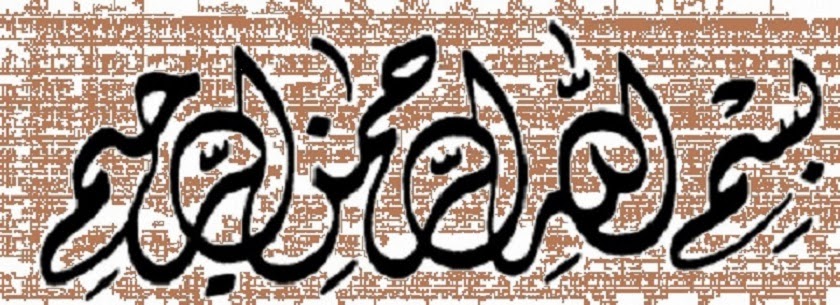It is narrated in the two Saheehs that Ibn ‘Abbaas [May Allaah be Pleased with him] said that he never saw the Messenger [Peace and Blessings of Allaah be upon him] more eager to fast than this day ( meaning the Day of ‘Aashoraa).
The Day of ‘Aashoora has a great virtue, an ancient sacredness and fasting it was the practice of the Prophets [Peace and Blessings of Allaah be upon them all. Both Nooh and Moosaa fasted it and the Prophet [Peace and Blessings of Allaah be upon him] said, “The Day of ‘Aashoora was the day in which the Prophets fasted, so you should fast them” [Narrated by Mukhlid in his Musnad].
It was also a day in which the People of the Book and the Mushriks of Quraysh fasted.
…
When the Messenger of Allaah [Peace and Blessings of Allaah be upon him] asked the Jews after migrating to al-Madeenah, “What is this day that you are fasting?” They replied by saying, “This is a great day, it is the day in which Allaah saved Moosaa and his people and drowned Fir’awn and his people. So Moosaa fasted this day out of thanks and so do we.” The Messenger of Allaah [Peace and Blessings of Allaah be upon him] then responded to them when he said, “We have more right to Moosaa than you.” So the Messenger of Allaah [Peace and Blessings of Allaah be upon him] fasted it and he ordered his Companions [May Allaah be Pleased with them all] to fast it also. This was narrated in al-Bukhaaree and Muslim.
In another narration that was collected by Imaam Ahmad in his Musnad, extra wording appears; “It is the day in which Allaah saved Moosaa and Banee Israa’el from drowning and caused Fir’awn and his people to be drowned instead. It is the day when the ark of Nooh settled on Mount Joodee (i.e. the day the flood of the people of Nooh ended), so both Nooh and Moosa [Peace be Upon them both] fasted this day, in thanks to Allaah, the Glorofied and the Exalted. ”
…
Imaam Aboo Haneefah and what appaers to be the correct view from Imaam Ahmad is that fasting this day, before the obligation of fasting Ramadhaan, was obligatory.
The majority of the Shaafi’ees stated that it was never obligatory and it was always a stressed recommendation to fast this day. However now, after the obligation of fasting Ramadhaan, the scholars differed: some said that fasting ‘Aashooraa has been abrogated in its ruling but others stating that it is recommended.
(Some of the Salaf stated this). Qays bin Sa’d said, “We act upon it (i.e. still fast the day of ‘Aashooraa)”.
It is narrated that Ibn Mas’ood and Ibn ‘Umar [May Allaah be Pleased with them both] both stated that it is not recommended anymore.
It is also narrated that Sa’eed bin Mussyab [May Allaah have Mercy on him] said about its abrogation, “The Messenger of Allaah never fasted it.” A similar statement was narrated by Sa’d bin Abee Waqaas [May Allaah be Pleased with him].
But the majority of the scholars uphold the ruling that it is Mustahab (highly recommended). This was narrated to be the view of ‘Umar, ‘Abdur-Rahmaan bin ‘Awf, Aboo Moosaa al-‘Asharee, Qays bin Sa’eed, Ibn ‘Abbaas and others from the companions [May Allaah be Pleased with them all].
Ibn ‘Abbaas [May Allaah be Pleased with him] said about fasting ‘Aashooraa, “I never saw the Messenger of Allaah more eager to fast, after Ramadhaan, than the day of ‘Aashooraa.”
It is also narrated that the Messenger of Allaah [Peace and Blessings of Allaah be upon him] said, “I hope with Allaah that is expiates the sins of the previous year.”
It is also narrated that the mother of the believers, Hafsah bin ‘Umar bin al-Khattaab [May Allaah be Pleased with her] said, “The Prophet never left fasting the day of ‘Aashooraa, the first ten days of Dhu al-Hijjah and three days of every month.” [Narrated by Aboo Dawood].
It is narrated that Ibn ‘Abbaas used to fast this day even whilst travelling and that he used to fast the ninth and the tenth, fearing that he may miss the tenth.
It is also narrated (others from the Salaf) that Ibn Ishaaq used to fast the day of ‘Aashooraa, the day before it and a day after it (i.e. 9th, 10th and 11th) and he said about it, “I fear that I might miss it”.
It is also narrated that Ibn Sireen used to fast all three days.
It is narrated that Ibn ‘Abbaas and ad-Dahaak used to fast the ninth and the tenth.
It is narrated that Aboo Haneefah, ash-Shaafi’ee and Ahmad all recommended the fasting of the ninth and the tenth.
Adapted from Lataa’if al-Ma’aarif (Pg. 37-41) by Imaam Ibn Rajab al-Hanbalee (795 H) [May Allaah have Mercy on him]

